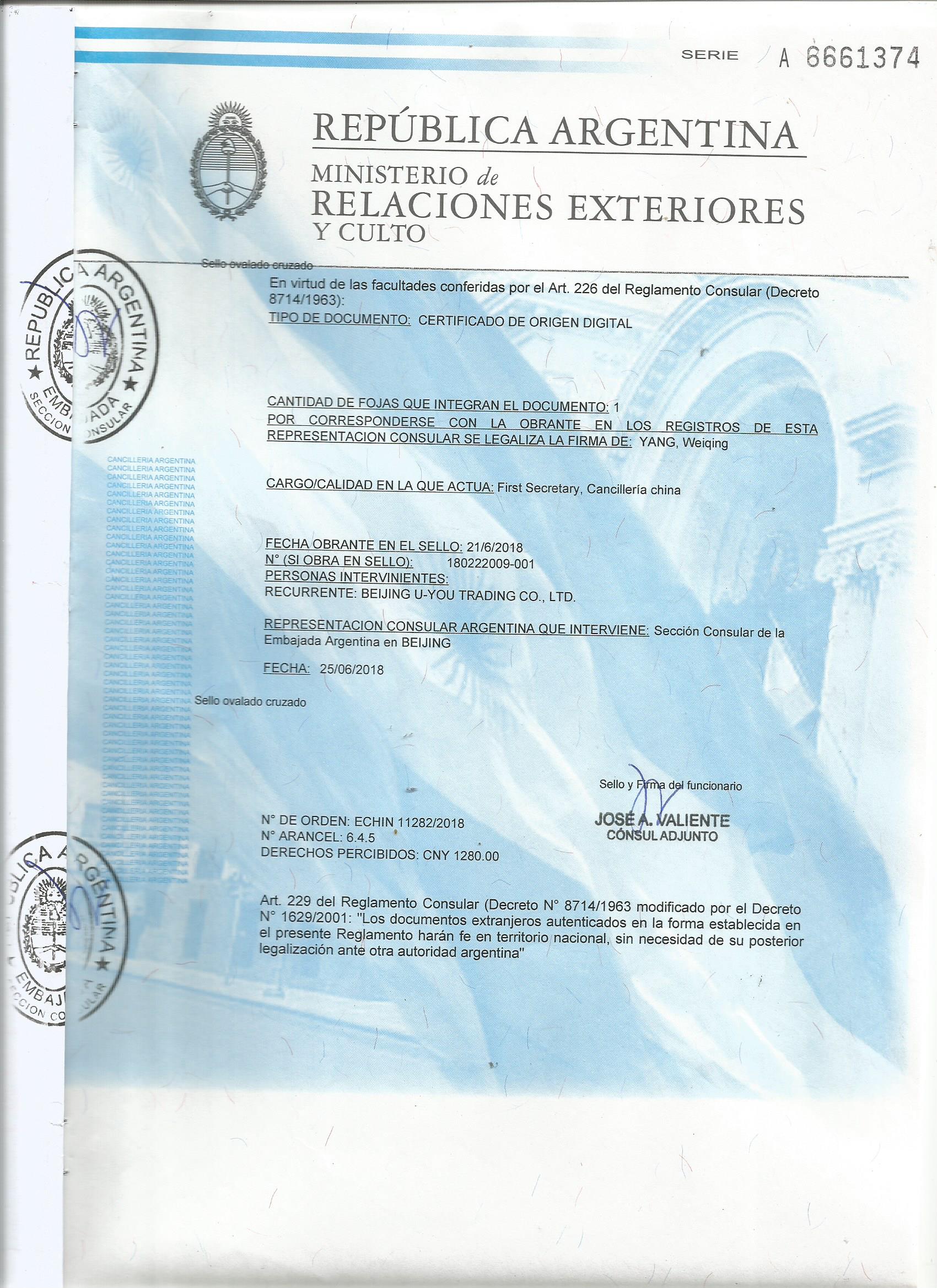海运提单阿根廷领事馆双认证(BL签字)

海运提单(Ocean Bill of Lading)是由船长或承运人的代理人签发的证明海上运输合同和货物由承运人接管或装船,以及承运人据以保证交付货物的单据。单据中关于货物应交付指定收货人或按指示交付,或交付提单持有人的规定,即构成这一保证。提单的性质为:提单是货物收据;提单是货物所有权的凭证;提单是承运人和托运人之间运输协议的证明;提单是收取运费的证明。由于海运提单的可转让的性质,从而保证了国际贸易能够在一个高速度水平上发展。
The Ocean Bill of Lading is the document which certifies that the contract of carriage by sea, which is signed by the master or the carrier's agent, and the goods are taken over or shipped by the carrier, and against which the carrier warrants to deliver the goods. The provision in the document that the goods shall be delivered to the named consignee or to the order or to the holder of the Bill of lading constitutes this guarantee. The nature of the bill of lading is: the bill of lading is a receipt of goods; The bill of lading is the title to the goods; A bill of lading is the proof of an agreement between the carrier and the shipper. Bill of lading is proof of freight charge. The negotiable nature of ocean bills of lading ensures that international trade can develop at a high speed.
提单内容由正面事实记载和提单背面条款两部分组成。各船公司所制定的提单,其主要内容大致相同。The bill of lading consists of two parts: the facts on the front and the clauses on the back. The main contents of the bill of lading made out by each shipping company are roughly the same.
提单的背面条款及其依据
提单背面印定的条款规定了承运人与货方之间的权利、义务和责任豁免,是双方当事人处理争议时的主要法律依据。Reverse clause of bill of lading and its basis
The terms printed on the back of the bill of lading define the rights, obligations and immunities between the carrier and the shipper and constitute the main legal basis for the settlement of disputes between the parties.
在全式(LONG TERM)正本提单的背面,列有许多条款,其中主要有:
(1)定义条款(DEFINITION CLAUSE)—— 主要对“承运人”,“托运人”等关系人加以限定。前者包括与托运人定有运输合同的船舶所有人,后者包括提货人、收货人、提单持有人和货物所有人。
(2)管辖权条款(JURISDICTION CLAUSE)—— 指出当提单发生争执时,按照法律,某法院有审理和解决案件的权利。On the back of the full (LONG TERM) original Bill of lading, there are a number of clauses, among which the main clauses are:
(1) DEFINITION CLAUSE -- this CLAUSE mainly defines the terms "carrier", "shipper" and other interested parties. The former includes shipowners who have a contract of carriage with the shipper, and the latter includes drawers, consignee, holders of bills of lading and owners of goods.
(2) JURISDICTION CLAUSE -- states that when a bill of lading comes in dispute, a court has JURISDICTION under the law to hear and resolve cases.


